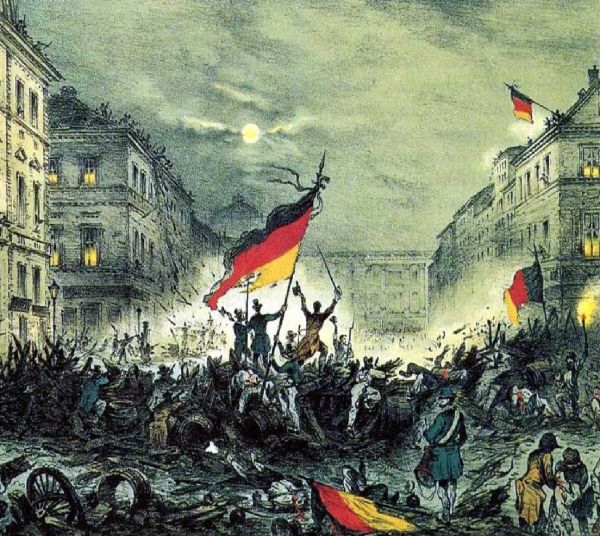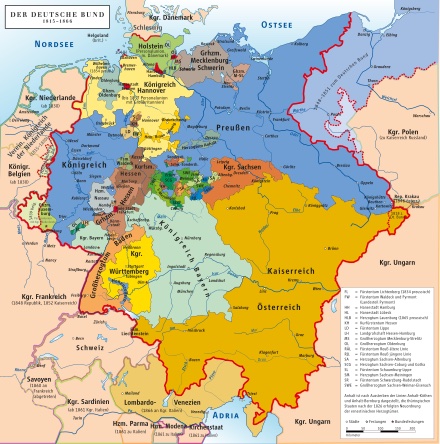Revolution, part IV: German Revolution, 1848
The American revolutionaries in the 1770s who penned newspaper articles during the Pre-War ferment, advocating independence, who signed onto documents that explained the reasons why they wanted independence, and finally who crowded into Constitutional Hall in Philadelphia during the hot Summer of 1787 to hammer out the structure of the new government, have endured their share of criticism from a number of sources.
Most of the Founders had some wealth and education, and were out-and-out elitists. Some of them owned slaves, had bad tempers, extra-marital affairs, or some other human failing. Their failings aside, they produced one the most enduring documents of modern times. Their Constitution transcends their failings. The Founders allowed America to take advantage of an historical time-window and to climb through it--into the ultimate freedom-loving society of modern time, the United States has given millions a refuge into prosperity and has made it the most ethnically diverse country on the planet.
The German Revolutionaries of 1848, however, did not learn much from the American experience, Like the American revolutionists, the revolutionists in Germany spoke the same language and wanted a single country to govern them all. Also like the Americans, the Germans wanted a representative democratic government enabled by a constitution--and to dismatle a hereditary monarchy guided by abolutistist intentions and assisted by a hierarchical nobility, allied with the military.
Come to think of it, America needs another revolution to resolve the distrust and disunity in the present nation; but few events demonstrate the problems and risks of a revolution like the German revolt of 1848. Even today, historians have difficulty trying to represent the intentions of the 48ers--or else are unwilling to, for personal reasons. That lack of definition worries me.
In July, 1998, for instance, the German news magazine Der Spiegel published its title article "Es lebe die Republik!" (The republic lives on!) commemorating the 150th anniversary of the Revolution. The article describes the revolution as an effort by idealistic Germans to unify the 39 bankrupt and poorly-managed kingdoms and principalities--where everyone spoke German--into a unified country with connecting railroads, industrial networks, a single currency, and a single unified government elected by the voters.
Sounds honorable enough! The United States unified into a federal republic for the same reason. And like the U.S, the German revolutionaries wanted each region of Germany to send representatives to the parliament on behalf of their constituents, and a constitution to give it an administrative and legal foundation.
The problem for the 48ers really only emerges when you start studying the details of it. The leaders of the Revolution of 1848 all considered themselves "Radical Democrats," like Bernie Sanders. They wanted a socialist government, which means that they wanted private property to belong to the people. The people would control everything, which means that they would empower the government to control everything on their behalf. Sanders and his followers hate for Republicans to link them to socialism or Marxism, but the leading revolutionaries of 1848 did the obliviously politically-incorrect thing of publishing articles in Karl Marx's newspaper Die Neue Rhenische Zeitung. The Spiegel article does not mention this.
With these policies, Germany, or any other nation, would eventually become just another in the growing list of U.N. client-nations looking for hand-outs.



